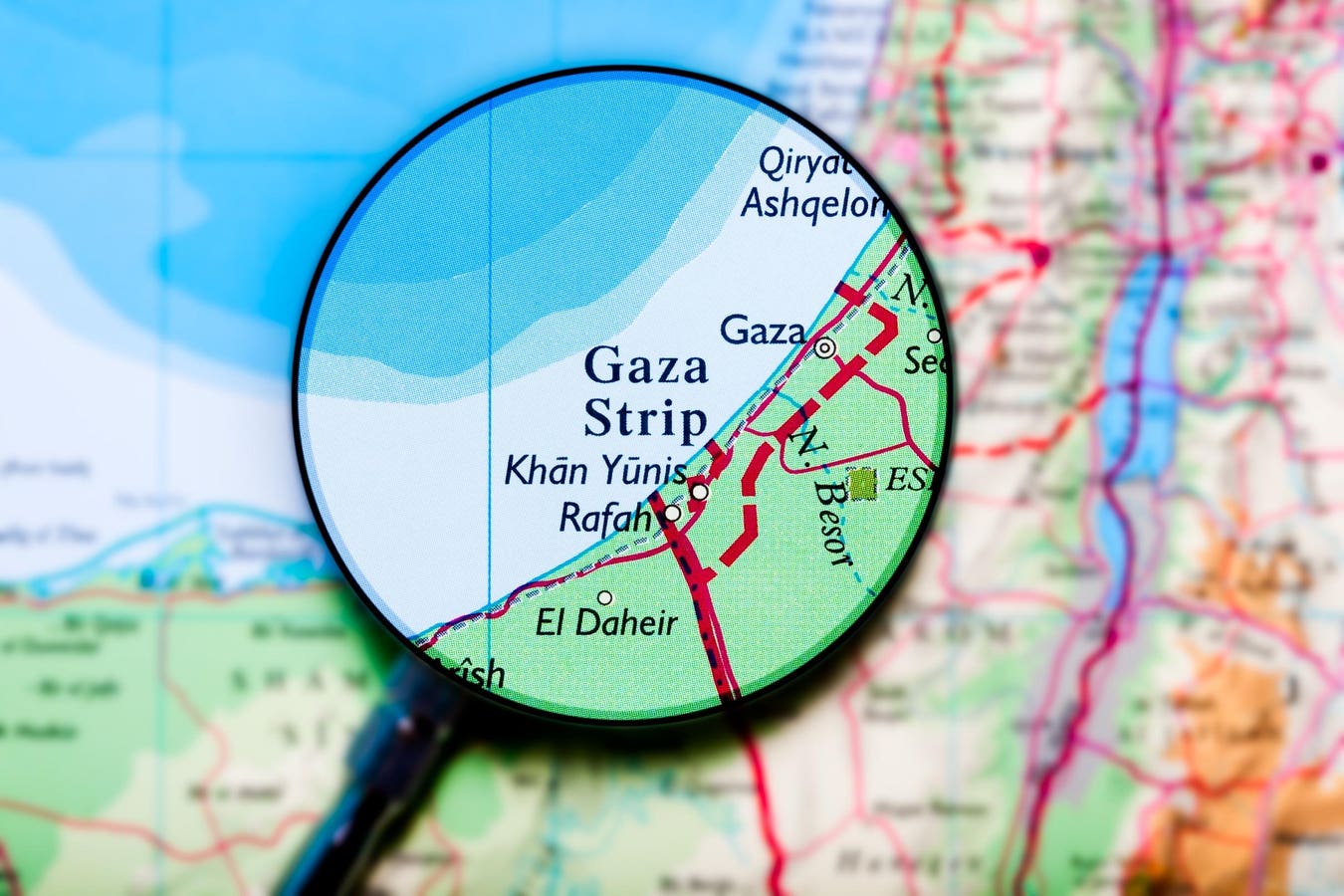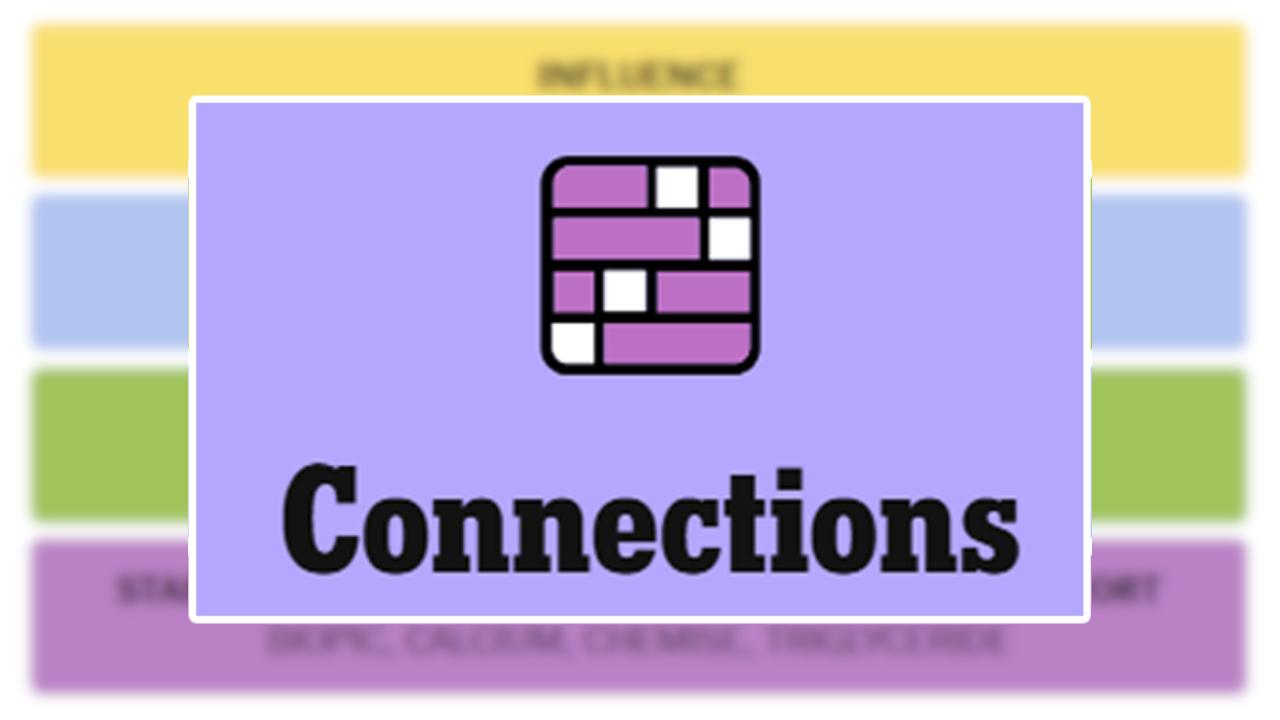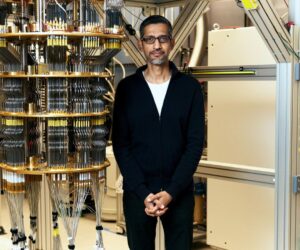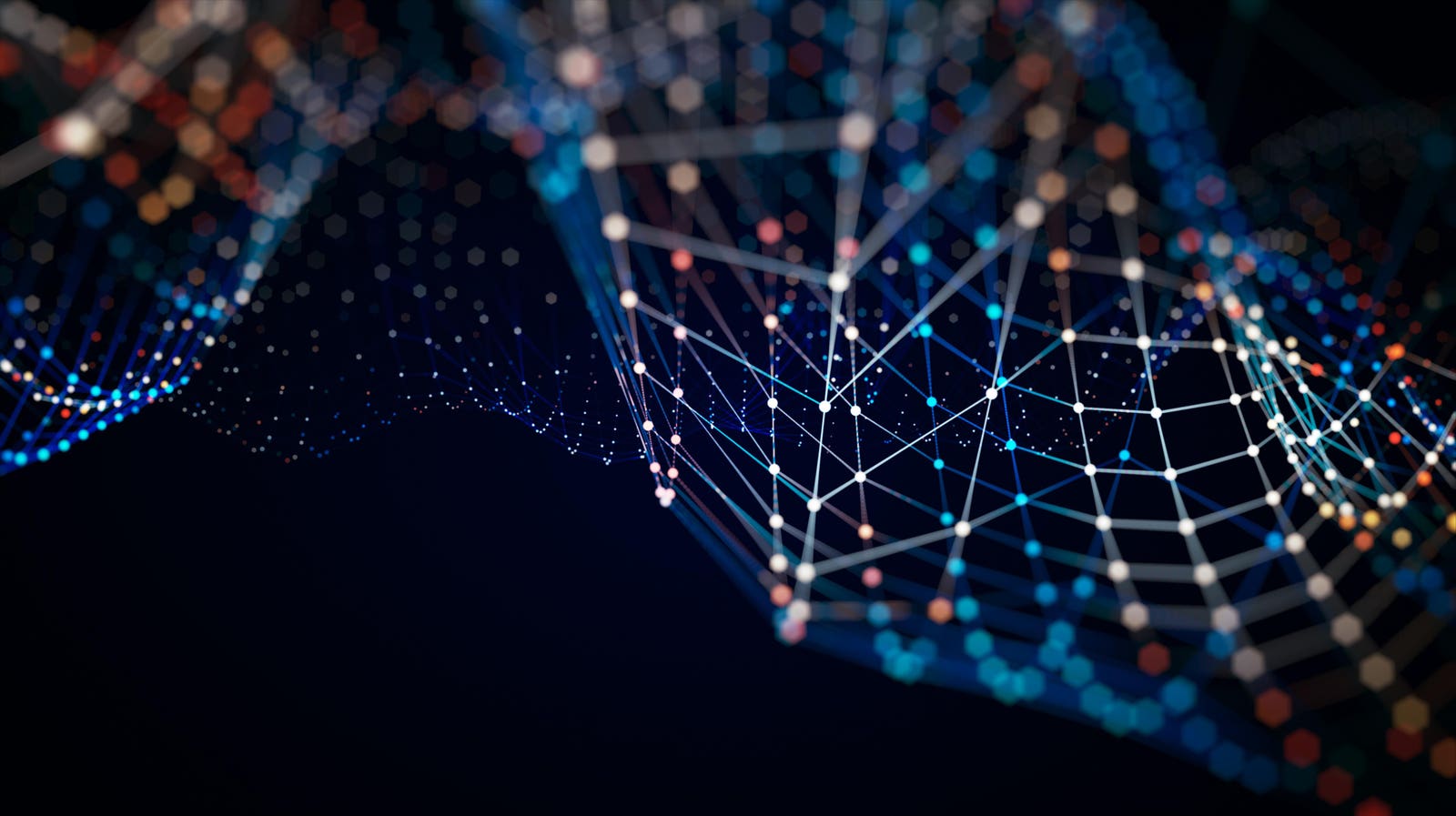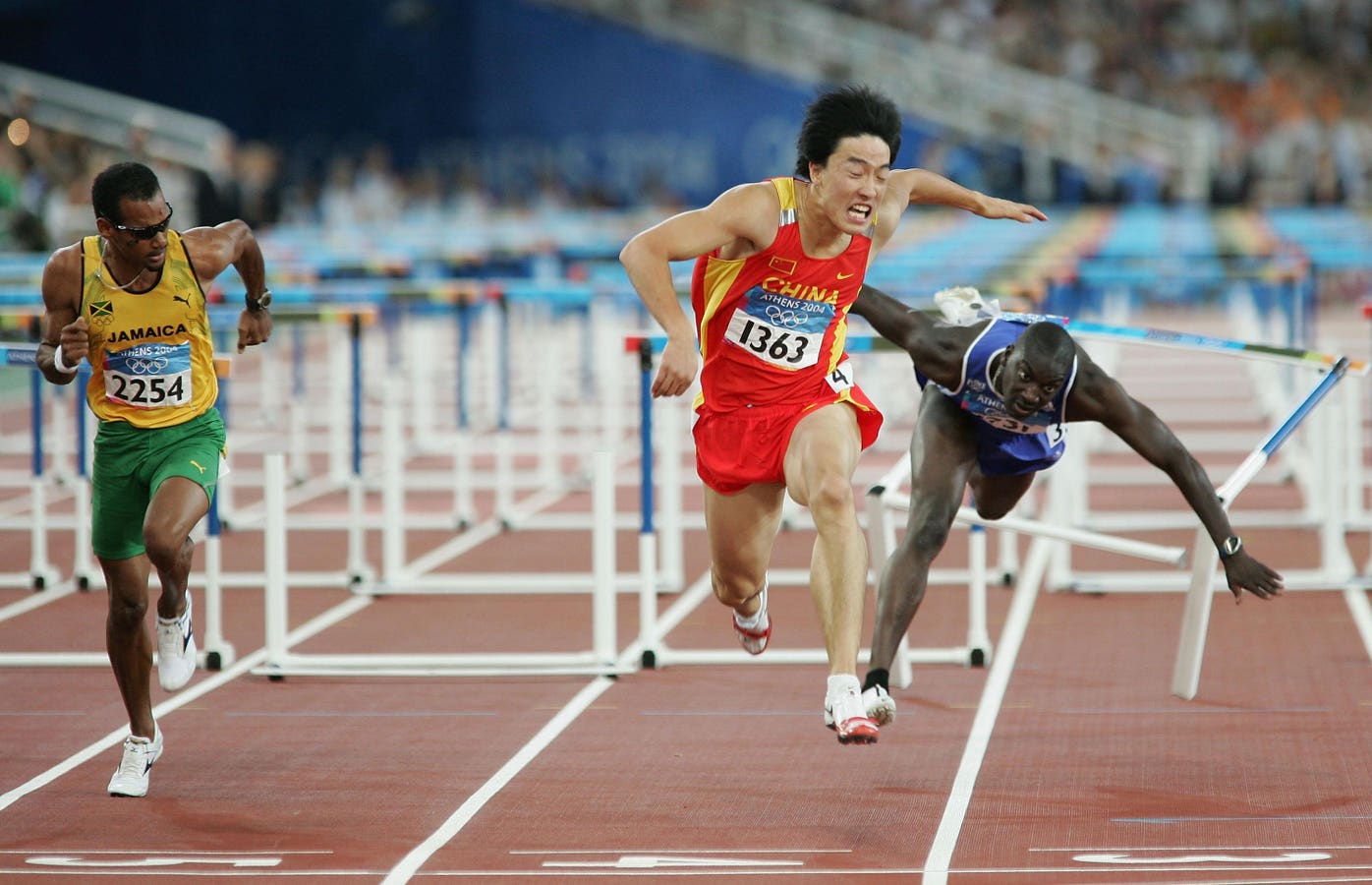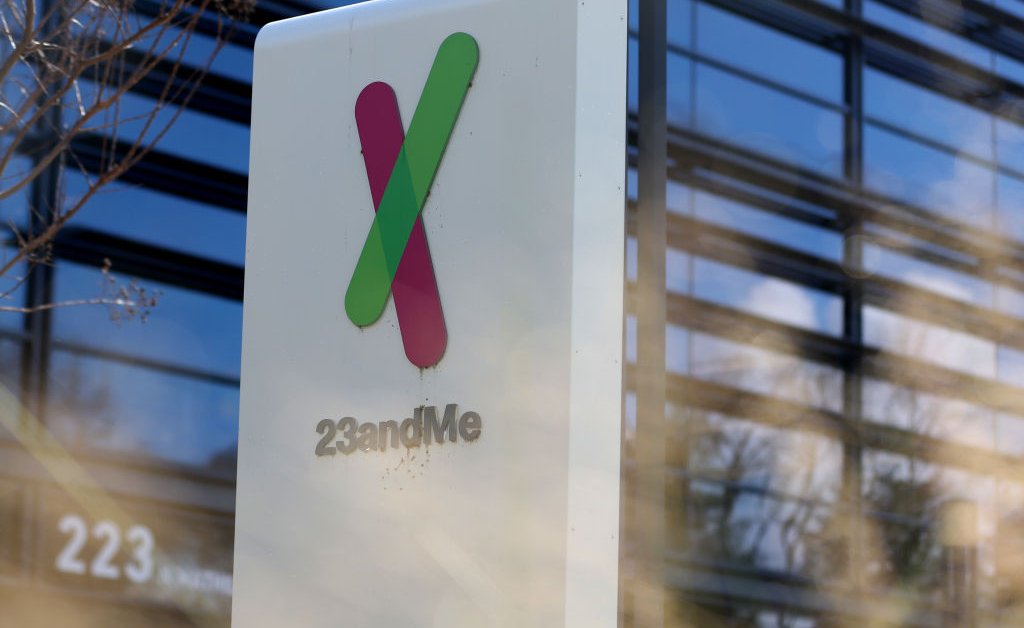Gaza Strip map .Source: “World reference atlas” … More
The stark reality of Gaza on July 26th, 2025, presents a chilling paradox. While humanity celebrates advancements in Artificial Intelligence, capable of solving complex problems and optimizing vast systems, millions of children, women, and men endure unimaginable suffering. They face starvation, displacement, and death from man-made violence, even as the global capacity for food production and the pathways to peace exist. This disconnect — suffering on a mass scale amidst technological excitement — forces us to confront an uncomfortable question: Are we losing sight of our essential humanity?
It is a troubling imbalance. Our collective gaze is often captivated by the promise of ever more sophisticated technology, computing power, political absurdity and financial might. Yet, this fascination has begun to obscure the fundamental truth that suffering will not cease simply because our algorithms become more elegant or our wealth accumulates. Unless human minds return to the timeless wisdom of the Golden Rule — treating others as we wish to be treated, and refraining from actions we would not endure ourselves — we risk losing our way. This universal principle, woven into the fabric of every major religion and ethical tradition, suggests that perhaps, instead of more compute, we need more compassion. Otherwise – would we not be better off if AI-powered agents, unburdened by human frailties, acted on our behalf?
Gaza: A Mirror Reflecting Our Paradox
Today, in Gaza, the humanitarian crisis is at a peak. Reports from aid agencies and the media detail a catastrophic situation: widespread food insecurity, a decimated healthcare system and a population grappling with the psychological scars of prolonged conflict and displacement. Despite global efforts, the scale of need far outstrips the aid reaching those in despair. This is not a natural disaster; it is a man-made catastrophe, a stark reminder that human decisions, or the lack thereof, perpetuate immense suffering.
The images emerging from Gaza — of families scavenging for food, of children succumbing to preventable diseases, of lives shattered by conflict — stand in stark contrast to the narratives of progress dominating our technological discourse. We marvel at AI generating art, composing music, and driving autonomous vehicles, while basic human dignity is denied to millions. This dissonance highlights a systemic blind spot: our collective ability to innovate technologically often outpaces our capacity for collective empathy and ethical governance.
The Allure Of Progress Vs. The Ache Of Reality
The psychological allure of technological progress is undeniable. AI promises efficiency, predictive power, and solutions to complex challenges. It offers a sense of control, a belief that with enough data and processing power, any problem can be solved. This narrative is powerful, driving investment, research, and public imagination. However, it can also create a dangerous diversion, drawing our attention away from the messy, deeply human problems that resist purely technical fixes.
From a psychological perspective, our brains are wired to seek solutions and avoid discomfort. AI offers seemingly clean, scalable solutions, allowing us to intellectualize problems rather than confronting their raw, emotional weight. This cognitive offloading, while efficient for certain tasks, can inadvertently diminish our direct engagement with human suffering. We become excited about AI’s potential to map refugee movements or optimize aid logistics, yet the fundamental blockades to aid delivery or the root causes of conflict remain unaddressed by human will.
Systemic Blind Spots: The Overlooked Human Element
Our focus on quantifiable outputs and technological solutions often leads us to overlook the essential humanistic component — the very fabric of a thriving society. In a world obsessed with metrics, how do we measure the value of a child’s laughter, the dignity of a family unit, or the profound peace of a community free from fear? These are the immeasurable currencies of human flourishing, often relegated to the sidelines in strategic planning.
Micro, meso, macro and meta – everything is connected. The Gaza crisis is not an isolated incident but an outcome of interconnected political, economic, and psychological systems. When these systems prioritize power, resource control, or ideological purity over human well-being, suffering becomes an inevitable byproduct. The paradox is that we possess the collective intelligence and resources to alleviate much of this suffering, yet our current systemic configurations, driven by fragmented human intentions, prevent it. This calls for a re-evaluation of our priorities and the ethical frameworks guiding our actions.
The Golden Rule: Ancient Compass For A Modern World
Perhaps the most potent instrument at our disposal is not a new algorithm or a larger budget, but a return to an ancient, universal principle: the Golden Rule. “Do unto others as you would have them do unto you.” This simple ethical compass is found in virtually every major spiritual and philosophical tradition, from Confucianism to Christianity, Islam to Hinduism. It is a testament to a universal human understanding of reciprocity and empathy.
In the context of Gaza, applying the Golden Rule means asking: Would I want my family to starve? Would I want my home destroyed? Would I want to live in constant fear? The answer is unequivocally no. This principle bypasses complex geopolitical narratives and cuts straight to the heart of shared humanity. It suggests that compassion, a deeply human trait, must precede and guide any technological or financial intervention. Without this ethical grounding, even the most advanced AI could be weaponized or simply fail to address the core human needs it purports to serve. It’s a call for “more compassion, less compute” in our fundamental approach to global challenges. ProSocial AI – AI-systems that are tailored, trained, tested and targeted to bring out the best in and for people and planet, is possible – but it starts with natural intelligence, human minds and hearts.
Harnessing Our Treasures For Humanity: AI Guided By NI
This is not to say that technology has no role. Far from it. Our unique range of technological assets, including AI, can be powerful instruments for good, if guided by a truly human and humane mindset.
- Optimizing Humanitarian Aid: AI can revolutionize logistics, predict famine hotspots, and optimize resource allocation to ensure aid reaches those most in need, bypassing bottlenecks and corruption. Research from organizations like the World Food Programme explores AI’s role in enhancing food security and emergency response.
- Early Warning and Conflict Prevention: AI can analyze vast datasets to identify escalating tensions, predict conflict zones, and inform early intervention strategies, potentially preventing future harm.
- Psychological Support and Healing: AI-powered tools, when carefully designed and ethically deployed, could offer scalable mental health support, connecting displaced individuals with resources and fostering resilience.
- Rebuilding and Reconstruction: AI can assist in efficient urban planning, damage assessment, and resource management for post-conflict reconstruction, ensuring sustainable and equitable rebuilding efforts.
If our natural intelligence remains shackled by self-interest and division, then the logical, compassionate actions of AI, unburdened by human interests, political agendas and personal flaws, might be preferable. This is a desperate thought, a challenge to humanity to rise to its ethical potential before ceding moral agency to machines.
Healing Humanity: A Holistic Imperative
To truly help humans, hinder future harm and heal humanity, we need a holistic understanding of ourselves, the societies we inhabit and the planet we are part of. This means recognizing the interconnectedness of conflict, poverty, environmental degradation and psychological well-being. It requires moving beyond siloed solutions to embrace a systemic approach where technological innovation is always subservient to human values.
Healing humanity demands more than just patching wounds; it requires addressing the root causes of suffering. This involves fostering empathy, promoting dialogue, challenging dehumanizing narratives, and building resilient communities. It necessitates a mindset that is both human (acknowledging our complexities and vulnerabilities) and humane (driven by compassion and a commitment to dignity for all). Our technological treasures, particularly AI, must be harnessed as extensions of this humane intent, amplifying our capacity for good, rather than becoming instruments of further division or indifference.
Practical Takeaway: Cultivating Compassionate Algorithms
The practical takeaway is not to reject technology, but to infuse it with conscious ethical intent. We must cultivate “compassionate algorithms” within ourselves and our organizations:
Awareness: Regularly engage in self-reflection. How do your actions, even small ones, align with the Golden Rule? How can you consciously cultivate empathy for those suffering, even if geographically distant?
Appreciation: Demand and support the ethical development and deployment of AI. Question the algorithms: Are they designed to promote well-being, reduce bias, and foster equitable access? Advocate for transparency and accountability in AI systems, especially those impacting vulnerable populations.
Acceptance: Actively seek out diverse perspectives and challenge your own echo chambers. Use technology to connect with, rather than isolate from, those with different experiences. Support initiatives that use AI for peacebuilding, intergroup dialogue, and humanitarian aid.
Accountability: When faced with complex problems, prioritize solutions that place human dignity, well-being, and agency at their core. Technology should serve humanity, not the other way around.
The situation in Gaza today, July 26th, 2025, is a painful reminder of our collective responsibility. We possess the intelligence, the tools and the ancient wisdom to create a world where peace and food are possible for all. The ultimate test of our technological prowess will be whether it helps us reclaim our deepest human values, or merely accelerates our detachment from them.

